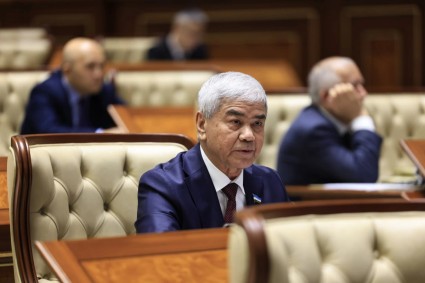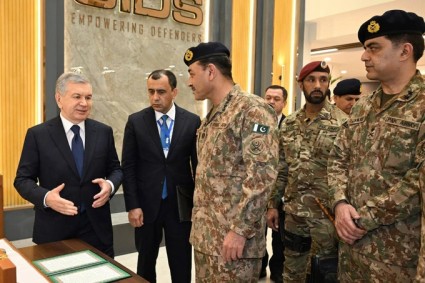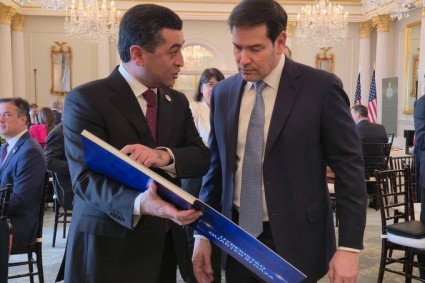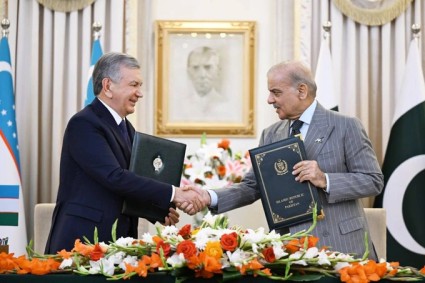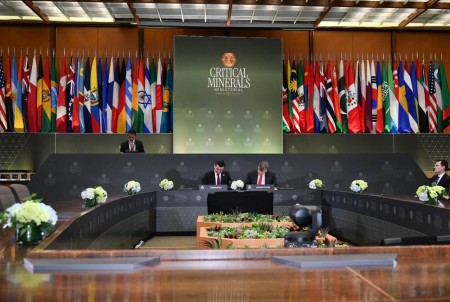On December 15, the President of Uzbekistan signed the constitutional State of Emergency Bill into Law. The document was published in Xalq Sozi newspaper today with immediate effect.
Until now, there was no legislative document in Uzbekistan establishing the grounds for the introduction of a state of emergency (SE) in the country.
According to the law, a state of emergency is a special legal regime for the activities of state bodies, self-government bodies and organizations, which is temporarily introduced in accordance with the Constitution throughout the territory or in certain localities, allowing the establishment of certain restrictions on the rights and freedoms of Uzbek nationals, foreign citizens and stateless persons, and also the rights of legal entities and imposing additional obligations on them.
The Law also introduces the concept of a curfew. This is the time of day during which a ban is established on being on the streets and in other public places or outside the home without special passes and identity documents.
The purpose of introducing a state of emergency, according to the document, is to eliminate the circumstances that served as the basis for its introduction, to ensure the safety of citizens and protect the constitutional order and territorial integrity of Uzbekistan.
The circumstances of the introduction of the state of emergency
A state of emergency is introduced in exceptional cases when there is an immediate threat to the life, health and safety of citizens, the constitutional order and territorial integrity of Uzbekistan, the elimination of which is impossible without the use of emergency measures.
Such circumstances include:
- a real external threat, attempts to forcibly change the foundations of the constitutional system and territorial integrity of Uzbekistan, mass riots, terrorist acts, as well as blocking or seizure of especially important and categorized objects or individual areas, training and activities of illegal armed groups, interethnic, interfaith and border conflicts, accompanied by violent actions that create an immediate threat to the life, health and safety of citizens and the activities of state bodies and other organizations;
- major disasters, natural disasters, epidemics and other emergencies of a natural and man-made nature, environmental emergencies requiring large-scale rescue and other urgent work.
Introduction of SE
The state of emergency is introduced by the decree of the President of Uzbekistan. The decree must be immediately published in the media. It defines:
- the circumstances that served as the basis for the introduction of the state of emergency;
- justification of the need for its introduction;
- the boundaries of the territory where the state of emergency is introduced;
- forces and means to ensure the state of emergency;
- a list of emergency measures and the limits of their application, an exhaustive list of temporary restrictions;
- state bodies, their officials responsible for the implementation of emergency measures applied in a state of emergency;
- special government bodies created for the period of the state of emergency, and their powers;
- the date and time the decree entered into force, as well as the duration of the state of emergency.
The presidential decree on the introduction of state of emergency must be approved at a joint meeting of the Legislative Chamber and the Senate. If the chambers do not approve the decree, it will become invalid.
Duration of SE
A state of emergency introduced throughout the territory of Uzbekistan cannot exceed 30 days, and introduced in its individual localities - 60 days.
The state of emergency can be extended for one more term by presidential decree if the goals of declaring the state of emergency have not been achieved.
The state of emergency is fully or partially terminated, including ahead of schedule, if the circumstances that served as the basis for the introduction of the state of emergency have been eliminated.
Types of emergency measures
Emergency measures and temporary restrictions applied when introducing a state of emergency can be applied in combination and separately. Among them:
- full or partial suspension of the powers of government bodies, local government bodies, citizens' self-government bodies;
- restriction on freedom of movement in the territory where the state of emergency is introduced, as well as a special regime of entry into and exit from the specified territory;
- strengthening the protection of public order, especially important and categorized objects and facilities that ensure the life of the population and the functioning of transport;
- restrictions on the implementation of certain types of activities, including the sale of goods, the performance of work and the provision of services;
- a special procedure for the sale, purchase and distribution of food and basic necessities;
- prohibition or restriction of holding assemblies, rallies, street processions or demonstrations, as well as other mass events;
- restriction of the movement of vehicles and the implementation of their inspection;
- suspension of the activities of hazardous industries and organizations that use explosive, radioactive, as well as hazardous chemical and biological substances;
- evacuation of the population to safe areas with the obligatory provision of stationary or mobile living quarters for temporary residence;
- the introduction of quarantine, the implementation of sanitary and anti-epidemic, veterinary and other measures;
- attraction of state reserves, mobilization of resources of organizations, regardless of the form of ownership and organizational and legal forms, change in their mode of operation, reorientation of these organizations to the production of products necessary in a state of emergency;
- in exceptional cases related to the need to carry out and ensure rescue and other urgent work, the involvement of the able-bodied population, vehicles of legal entities and individuals to carry out these works with mandatory compliance with the requirements of labor protection legislation.
The explanatory note to the document indicated that the Law was prepared taking into account international experience in the context of the spread of the coronavirus pandemic in the world.
During the discussion, some MPs noted that in the early days of the pandemic, the idea of вАЛвАЛdeclaring a state of emergency in the country was widely discussed in society, however, the lack of legislation did not allow this.


